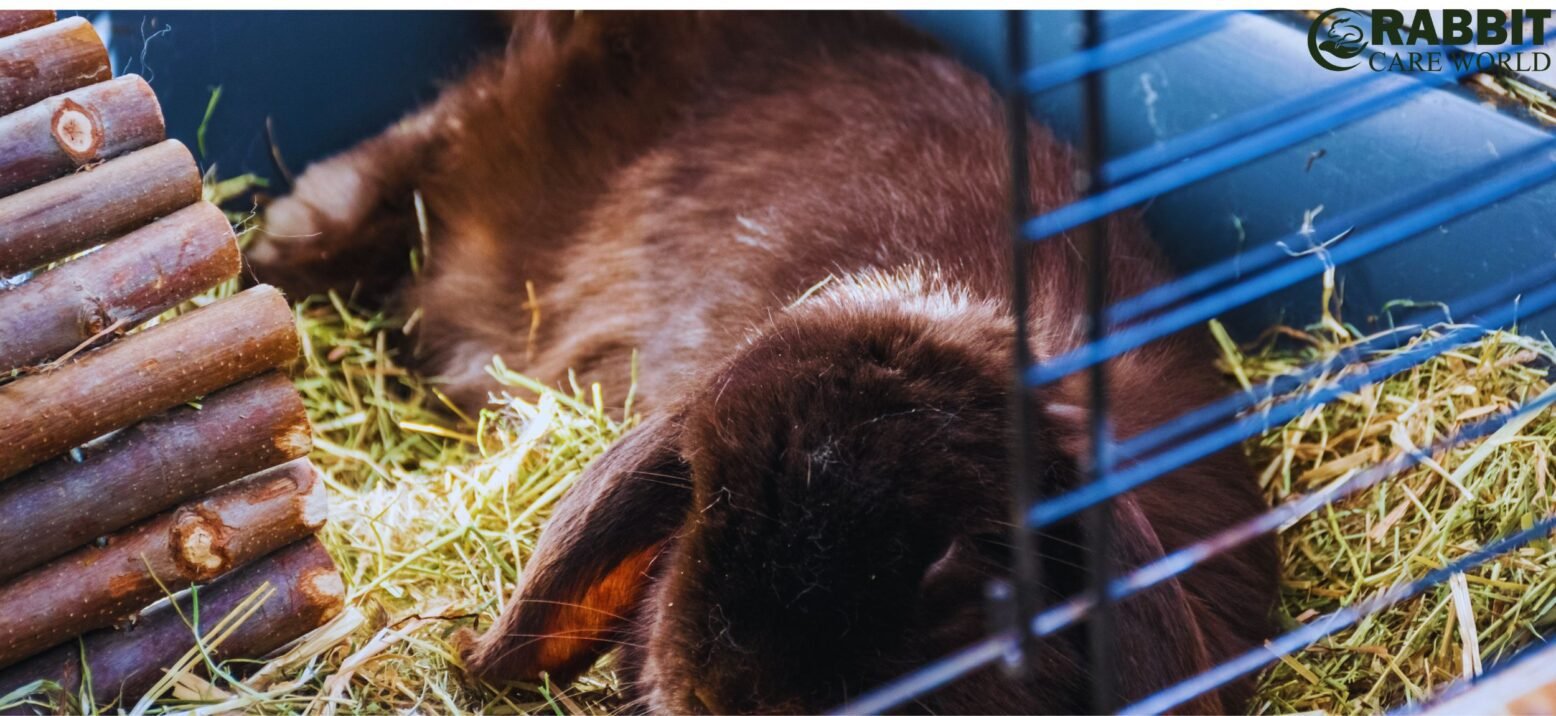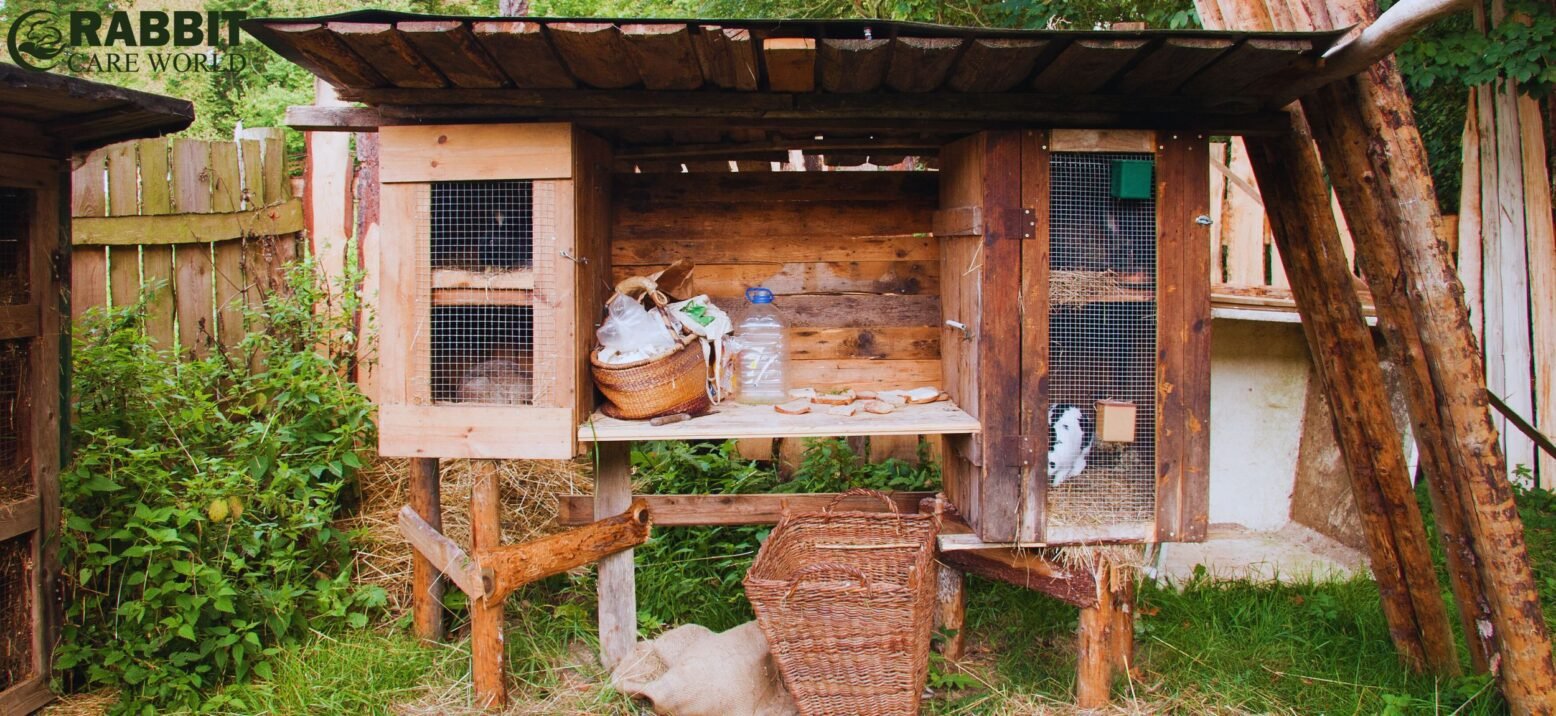Wondering, Can bunnies sleep in a cage? Yes, bunnies can sleep in a cage, but it’s essential to ensure their comfort and safety. A well-prepared cage provides a secure, cozy space for your bunny to rest.
Bunnies need a safe place to sleep. While cages can be suitable, they must be spacious and comfortable. A cramped cage can stress your bunny, affecting its health. Provide soft bedding, fresh water, and a quiet environment. This helps your bunny feel secure.
Remember, your pet’s well-being depends on its living conditions. So, a proper setup is vital. This introduction will guide you through creating a comfortable sleeping space for your bunny.
Table of Contents
ToggleBunny Sleep Patterns
Bunnies can sleep in a cage if it is comfortable and safe. Provide soft bedding and a quiet environment. They need a dark, calm space to rest well.
Understanding bunny sleep patterns helps you create a cozy environment for them. Rabbits have unique sleep habits. Their sleep cycles differ from humans. This makes it essential to know their natural habits and sleep requirements.
Natural Habits

Rabbits are crepuscular animals. They are most active during dawn and dusk. During the day, they prefer to rest. They often sleep with their eyes open. This helps them stay alert to danger. In the wild, they sleep in burrows. These burrows offer safety from predators.
Sleep Requirements
Bunnies need about 8 hours of sleep daily. This sleep is split into multiple naps. Providing a quiet space helps them rest well. Their cage should mimic a burrow. Soft bedding makes them comfortable. Reduce noise around their cage. This ensures they feel secure.
Choosing The Right Cage
Choosing the right cage is crucial for your bunny’s well-being. A good cage gives them a safe, comfortable place to rest. It also helps you manage their living space better. Let’s dive into the key factors to consider when selecting a cage for your bunny.
Size Considerations
The size of the cage is a vital factor. Bunnies need space to move around. A small cage can make them feel cramped and stressed. Ideally, the cage should be at least four times the size of your bunny. This gives them room to hop, stretch, and play.
Consider the height as well. Bunnies like to stand on their hind legs. The cage should be tall enough for this. A good rule is to have a cage at least 24 inches high. This ensures your bunny can move freely without restrictions.
Materials And Safety
The materials used in the cage are important for your bunny’s health. Avoid cages with sharp edges or small gaps where their feet can get stuck. Wire-bottom cages can hurt your bunny’s feet. Choose a cage with a solid bottom or cover the wire with a mat.
Plastic and metal are good choices for cage materials. They are easy to clean and durable. Make sure any plastic parts are non-toxic. Bunnies like to chew. Toxic materials can harm them. Ensure the cage door locks securely. This prevents your bunny from escaping and keeps them safe from other pets.
Here is a quick summary of key points:
| Factor | Recommendation |
|---|---|
| Size | At least 4 times the size of your bunny |
| Height | Minimum 24 inches |
| Material | Non-toxic plastic or metal |
| Safety | Solid bottom or mat over wire |
Choosing the right cage can make a big difference in your bunny’s life. It ensures they have a safe, comfortable, and happy place to call home.
Comfortable Bedding Options
Providing comfortable bedding for your bunny is essential. Bunnies need a cozy spot to sleep and feel secure. The right bedding ensures they stay warm, dry, and happy. Let’s explore some comfortable bedding options for your bunny’s cage.
Types Of Bedding
Various bedding types suit bunnies. Paper-based bedding is soft and absorbent. It helps keep the cage dry and odor-free. Hay is another great option. Bunnies love to burrow in it and nibble on it. Aspen shavings are safe and have good absorbency. They are less dusty than other wood shavings. Avoid cedar or pine shavings. They can harm your bunny’s respiratory system. Straw is an inexpensive choice. It provides good insulation but needs frequent changes.
Maintenance Tips
Keep your bunny’s bedding clean. Remove soiled bedding daily. Add fresh bedding to maintain a healthy environment. Clean the entire cage weekly. Use mild soap and water. Avoid strong cleaners. They can harm your bunny. Ensure the cage is dry before adding new bedding. Regular cleaning prevents odors and keeps your bunny happy.
Creating A Safe Environment
Bunnies can sleep peacefully in a cage if their environment feels safe. Creating a safe space ensures your bunny’s well-being. Let’s explore essential elements for a cozy cage.
Temperature Control
Bunnies are sensitive to temperature changes. Keep their cage in a cool area. Avoid direct sunlight and drafts. Ideal temperatures range between 60-70°F (15-21°C).
Use a thermometer to monitor the cage temperature. In warmer months, consider a fan or air conditioning. In colder months, provide extra bedding to keep them warm.
Noise Reduction
Loud noises can stress bunnies. Place their cage in a quiet room. Avoid areas near televisions or loud appliances.
Background noise like soft music can be soothing. Ensure the cage is away from frequent foot traffic. A calm environment helps your bunny sleep better.
Cage Placement
 Proper cage placement is crucial for a bunny’s well-being. It ensures they feel safe and comfortable. Let’s explore the best options for placing your bunny’s cage.
Proper cage placement is crucial for a bunny’s well-being. It ensures they feel safe and comfortable. Let’s explore the best options for placing your bunny’s cage.
Indoor Vs. Outdoor
Deciding between indoor and outdoor placement is important. Each has its benefits and challenges.
| Indoor | Outdoor |
|---|---|
|
|
Best Locations
Choosing the right spot for your bunny’s cage is key. The ideal location should be quiet and away from direct sunlight.
- Quiet Areas: Bunnies need a calm environment to rest.
- Away from Direct Sunlight: Direct heat can harm your bunny.
- Ventilated Spaces: Ensure good air flow without drafts.
Consider these tips for both indoor and outdoor placements. Your bunny’s comfort depends on it.
Routine And Consistency
Ensuring your bunny sleeps well in a cage requires routine and consistency. These elements are key in providing a safe and comfortable environment. Bunnies thrive on a regular schedule. It helps them feel secure and reduces stress.
Establishing A Routine
Creating a daily schedule for your bunny is essential. Consistent feeding, play, and sleep times can make a big difference.
- Feed your bunny at the same times every day.
- Allow playtime and exercise at set hours.
- Ensure a quiet and dark space for sleep.
Stick to this routine. It helps your bunny adapt and feel relaxed in their environment.
Monitoring Sleep Patterns
Observe your bunny’s sleep patterns to ensure they are getting enough rest. Look for signs of healthy sleep habits.
| Healthy Sleep Signs | Unhealthy Sleep Signs |
|---|---|
| Regular sleep times | Restlessness |
| Calm behavior | Excessive napping during the day |
| Relaxed body posture | Frequent changes in sleeping spots |
If you notice any unhealthy signs, adjust the cage environment. Ensure it is comfortable and free from disturbances.
Health And Hygiene
Maintaining your bunny’s health and hygiene is crucial. A clean environment prevents diseases and promotes well-being. Keeping their cage clean and observing their health ensures a happy, healthy pet.
Cleaning The Cage
Clean your bunny’s cage weekly. Remove any old bedding, droppings, and food remnants. Use a mild soap and water solution to scrub the cage. Rinse thoroughly to remove any soap residue. Dry the cage completely before adding new bedding.
Spot-clean the cage daily. Remove soiled bedding and droppings. This prevents the buildup of bacteria and keeps the cage fresh. Fresh water and food should be provided daily to ensure your bunny stays healthy.
Spotting Health Issues
Regularly check your bunny for health issues. Look for changes in behavior, appetite, or grooming habits. Signs of illness include lethargy, loss of appetite, or abnormal droppings.
Inspect your bunny’s fur and skin. Look for any signs of mites, fleas, or sores. Check their eyes and ears for discharge or redness. Healthy bunnies have bright eyes and clean ears.
Monitor your bunny’s weight. Sudden weight loss or gain can indicate health problems. Consult a vet if you notice any concerning changes. Regular vet visits are important for maintaining your bunny’s health.
Expert Tips For Bunny Well-being
Bunnies are delicate pets that need special care. Ensuring their well-being in a cage is crucial. Here are expert tips to keep your bunny healthy and happy.
Veterinarian Advice
Consulting a veterinarian is essential for your bunny’s health. Vets suggest using a large cage. Your bunny needs space to move and stretch. Cages should be at least four times the size of your bunny. A clean and dry environment is also critical.
| Advice | Details |
|---|---|
| Cage Size | At least 4 times the bunny’s size. |
| Environment | Clean and dry. |
Vets recommend using a soft bedding material. This prevents sores on their feet. Bedding should be changed regularly. Fresh water is crucial. A water bottle attached to the cage works best.
Common Mistakes To Avoid
Many bunny owners make mistakes that affect their pets’ well-being. One common mistake is using a cage that is too small. Bunnies need space to move. A cramped cage can cause stress and health problems.
Another mistake is not providing enough enrichment. Bunnies need stimulation. Toys, tunnels, and chewables are great options. Without these, they can become bored and depressed.
- Small cage sizes
- Lack of enrichment
- Improper bedding
- Infrequent cleaning
Improper bedding is another issue. Hard surfaces can hurt their feet. Always use soft bedding material. Finally, clean the cage regularly. A dirty cage can lead to infections and bad odors.
FAQ About Can Bunnies Sleep In A Cage
Can Bunnies Sleep In A Cage At Night?
Yes, bunnies can sleep in a cage at night. Ensure it’s comfortable and safe.
How Big Should A Bunny’s Cage Be?
A bunny’s cage should be at least four times its size. Room to move is key.
What Bedding Is Best For A Bunny’s Cage?
Soft, dust-free bedding like hay or straw is ideal. Avoid cedar or pine.
Do Bunnies Need Darkness To Sleep?
Bunnies can sleep with some light, but darkness helps them rest better.
How Often Should A Bunny’s Cage Be Cleaned?
Clean the cage weekly. Remove waste and old bedding to keep it fresh.
Conclusion
Bunnies can sleep in cages, but comfort is key. Ensure ample space and soft bedding. Regularly clean their cage for a healthy environment. Provide chew toys to keep them engaged. Consider their needs and safety at all times. Happy bunnies mean happy owners.
Always strive for the best care. Your bunny deserves it.



